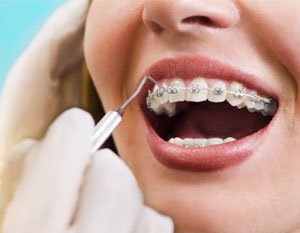Have you been putting off dental care because you think it won’t be covered by your insurance provider? If your employer offers a Flexible Spending Account (FSA) or Health Savings Account (HSA), you may be able to use the funds for your orthodontic treatments at Burlingame Smile Studio.
WHAT ARE FLEXIBLE SPENDING AND HEALTH SAVINGS ACCOUNTS?
HSAs and FSAs are designed to let employees save money for certain health care costs. These costs are referred to as “qualified expenses” and they include coinsurance, copayments and prescription costs. Employers often make contributions to the accounts as well. Most FSA and HSA accounts give people a debit card that they can use to pay for expenses throughout the tax year.
Ask your Human Resources department about the rules for contributions and open enrollment. Most corporations make open enrollment the end of the year. HSAs and FSAs have different tax benefits. It is important to know the rules for each account so that you maximize your tax savings and get the medical care you need.
 WHAT ARE THE DIFFERENCES BETWEEN FSAS AND HSAS?
WHAT ARE THE DIFFERENCES BETWEEN FSAS AND HSAS?
FSAs are available to anyone, including people who are self-employed. A person may contribute up to $2,550 each year. Contributions and distributions are exempt from federal income tax and employment taxes. FSA funds can be used by an account holder, his spouse and his dependents.
Most FSAs are “use it or lose it” plans that require you to use the funds by December 31 of the tax year or else lose the funds. If you have an FSA, you should plan ahead to ensure you don’t lose the opportunity to use the money for qualified medical expenses.
HSAs are available to people who have high deductible health plans (HDHPs). An HDHP is health insurance with a deductible of $1,300 for an individual or $2,600 for a family. To be eligible for an HSA, the HDHP must be your only health insurance plan, you cannot be claimed as a dependent on another person’s tax return, and you must not be eligible for Medicare.
Unused HSA balances roll over into the next year. You can make contributions to the HSA for the last tax year until April 15 of that tax year. An HDHP can be combined with your HSA, which lets you pay for medical expenses without paying federal taxes.
 HOW DOES MY HSA OR FSA COVER ORTHODONTIC TREATMENT?
HOW DOES MY HSA OR FSA COVER ORTHODONTIC TREATMENT?
Orthodontics is defined as the treatment of irregularities in the teeth and jaws, including the use of braces. Orthodontia includes problems of alignment and occlusion, which usually require treatments to straighten teeth and fix bad bites.
Most HSAs qualify orthodontic treatments which would include treatment with Braces, Invisalign, and/ or active retainers.
Since HSAs have a limit on how much money you can deposit each year, if you think you or your child may need braces, consult with Dr. April Lee about how much you need to save up. Many patients save up several years ahead of time.
CAN A FLEXIBLE SPENDING ACCOUNT BE USED FOR OTHER DENTAL PROCEDURES?
Yes. FSA reimbursement rules generally follow Internal Revenue Service (IRS) Publication 502, which covers the rules for deducting medical and dental expenses. Generally, anything that treats or prevents a dental disease is eligible for FSA coverage. The covered procedures include:
- Routine Dental Cleanings
- Fillings
- Crowns
- Sealants
- Tooth Extraction
- Dentures
- Inlays and Onlays
- Diagnostic Testings
- Preventive Treatments
You can use the FSA funds to pay for advanced procedures like treatment for gingivitis, treatments for TMJ disorders, oral surgery and gum recession.
FSA plans do not cover any form of cosmetic dentistry. There are no specific rules that define procedures that are purely cosmetic. Generally, FSA funds cannot be used for teeth whitening or porcelain veneers. However FSA funds can be used to pay for the installation and maintenance of dental braces.
CONTACT DR. LEE TODAY AT 650-231-2680 FOR AN APPOINTMENT TO DISCUSS YOUR ORTHODONTIC NEEDS!
Although cosmetic procedures are not eligible and are excluded by the IRS, many procedures are both medical and cosmetic in nature. It is important to make an appointment with Dr. Lee’s dental office well in advance of the end of the year. Dr. Lee can advise you of the treatment costs and help you obtain coverage from your HSA or FSA.
 HOW DOES MY HSA OR FSA COVER ORTHODONTIC TREATMENT?
HOW DOES MY HSA OR FSA COVER ORTHODONTIC TREATMENT?